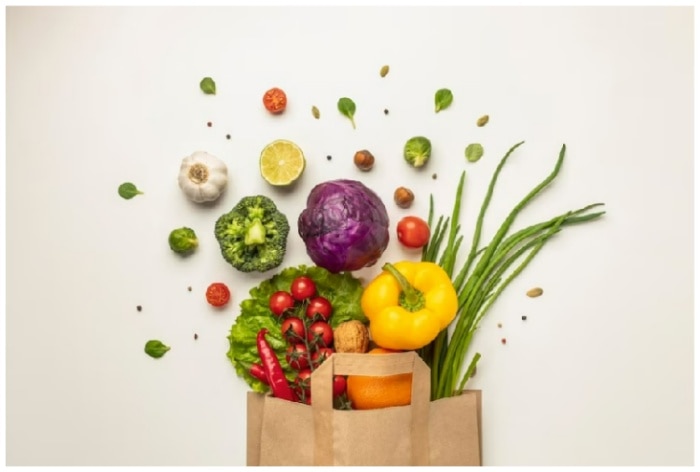Does eating healthy comes at a cost? Is aal fat bad? There are several myths that do the arounds about nutrition- what to eat and what not eat. Here are some myths debunked by experts!
In the contemporary era, our lives have become as sedentary as health-conscious we have become. The Covid-19 pandemic made people lead an unhealthy lifestyle and simultaneously people got conscious about their health as well. Most of us realise the significance of nutrition in maintaining physical health. However, there are numerous myths about nutrition as well. What to health, what is healthy, not healthy etc. Here are a few myths debunked by experts. How many of these have you heard before?
6 NUTRITION MYTH AND FACTS
Myth 1: To lose weight, one should skip meals
Fact: Skipping meals can actually be counterproductive. It often leads to overeating later in the day and may slow down your metabolism, making it harder to lose weight. Focus on having smaller and frequent meals throughout the day and, focus on balanced, portion-controlled meals and healthy snacks throughout the day to maintain a steady metabolism and energy levels.
Myth 2: Eating fats equals gaining weight.
Fact: Unsaturated fats, such as those found in avocados, nuts, seeds, and olive oil, are beneficial for heart health and overall well-being. These fats can help reduce bad cholesterol levels and decrease the risk of heart disease. However, saturated fats and trans fats, often found in processed foods and fried items, should be consumed sparingly.
Myth 3: Carb -free diet can lead to quick weight loss
Fact: Speaking exclusively with India.com, Rahul Maroli, CEO and Founder, Elevate Now, and Dr Neeta Deshpande, Chief Medical Officer explained the carbohydrate conundrum in the realm of nutrition. According to The STARCH study (2014) in India found that the evaluated Indian population derived 64.1% of their energy from carbohydrates, notably above the maximum recommended limit of 60%. In a related finding, the ICMR-INDIAB national study indicated that by reducing daily carbohydrate intake by 15%, approximately 66% of participants experienced diabetes remission. However, when adjusting one’s diet based on these findings, it’s crucial to recognize that all carbs are not the same. While processed foods surge blood sugar levels due to their easily absorbable carbs, fibre-rich carbs from whole grains, beans, vegetables, and fruits are crucial for regulating blood sugar, and cholesterol, and ensuring healthy digestion. These fibre-rich carbs have been consistently linked to healthier, longer lives.
Myth 4: Proteins Are Only Found in Non-Vegetarian Food.
Fact: While both animal and plant-based proteins can be part of a healthy diet, they differ in terms of nutrient content. Animal proteins, like meat, poultry, and fish, provide complete proteins with all essential amino acids. Contrary to the widespread belief, India’s vegetarian cuisine isn’t protein deficient. For instance, a cup of whole lentils contains about 18 grams of protein, nearly equivalent to the protein in 100 grams of chicken. Plus, legumes like chickpeas and kidney beans are both protein-rich and high in fiber. However, if one is on a low-calorie vegetarian diet, then protein supplements may be required to meet daily dietary requirements.
Myth 5: Using honey or jaggery over refined sugar is healthy and one does not need to limit their intake
Fact: While natural and minimally processed sugars like jaggery and honey are healthier alternatives over refined sugars, they still are sugars. Hence, one should watch out for their consumption.
Myth 6: Eating healthy is expensive
Fact: Eating healthy does not require breaking the bank. With careful planning, one can make the most of staple foods like beans, lentils, rice, oats, eggs, seasonal fruits and vegetables. In addition, dining out or ordering takeout can be expensive, and often these options come with larger portion sizes and added unhealthy ingredients. Cooking at home allows you to take charge of ingredients, portion sizes, and costs. Besides, it is an opportunity to experiment with nutritious recipes and flavours

